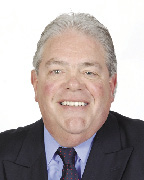Volumes are written about the process of selling a business. Less is written about preparing to sell a business. For closely held and family-owned enterprises in the middle market range of $5 million to $200 million everything begins with preparation.
The nature of the "business" and its industry, whether its products are tangible goods, services, a combination of both, licenseable or leaseable personal or real property, including technology and know-how (intellectual property) present a unique set of circumstances that occur in patterns familiar to the practitioners of the art of mergers and acquisitions (M&A), the term used to describe the selling and buying of a company or its assets.
The "due diligence" that owners and managers do before actually deciding to sell or receiving an unsolicited offer will pay dividends in many ways, including accurate communications, the basis of trust, the milk and honey of successful deals.
Careful preparation begins with understanding the facts about a business, including legal structure, ownership, operational and asset components and cash flows, sometimes expressed as earnings before interest, taxes and depreciation allowance (EBITDA.) A common question at the outset is what will a buyer pay in terms of a multiple of EBITDA?" Is the pricing likely to be expressed as a capitalization rate (an annual return on investment) or other factors such as licensing fees?
Internal due diligence, as the process is called, begins with a team of the owner, the company's board of directors and its principal accounting and legal advisors, either in-house counsel, outside lead counsel, or a lawyer selected from a firm with experience and knowledge in the M&A field. Legal experience in M&A is like the experience of a surgeon. One prefers the doctor who performs the procedure 10 times a week. They know the routine and how to handle surprises.
Eventually, the team can grow to include a confidential group of investment bankers, industry-specialized advisors and/or brokers, and various consultants, including in the environmental field.
The goal of accomplishing clear self understanding is to enable the owner and advisors to communicate effectively with prospects when the time comes, to build trust and to achieve the desired goal, the reward for years of hard work building a business.
Frank Capezzera, Esq., is a partner in Murtha Cullina's Real Estate and Regulatory Department and its Privately Owned Business Group, Boston, Mass.
Tags:
Preparing to sell a business: Owners and mangers should go through the "due dilligence" process
October 27, 2010 - Spotlights









